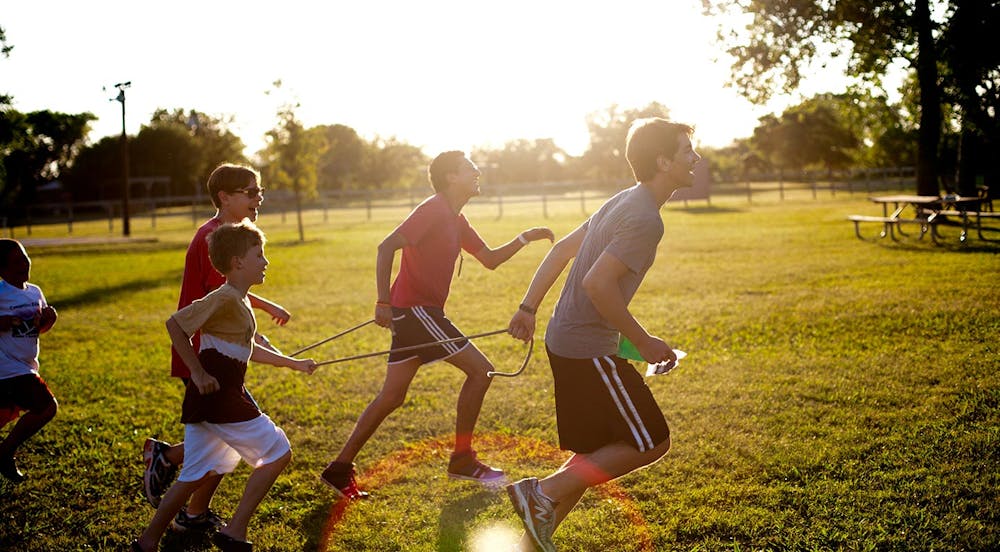
Camp skills are life skills
Recent research suggests that children have a deficit of many skills that are critical for success.
These are not the academic skills in which we invest so much time, energy, and attention. Instead, leading educators, researchers, and employers are all focusing on “non-cognitive skills” like communication, collaboration, creativity, grit, and empathy.
We think this is very exciting. If some children truly are lacking in certain critical skills, then we can help them learn and become more successful.
“The person we got in return the first day/night was someone we had never seen before – manners, politeness, responsibility, etc. He fell in love with the outdoors and realized how much fun it was to be doing something away from technology all the time. When we sat down for dinner, he cleared his plate, helped his sister and mom, then went as far as getting cleaning supplies and cleaning his place at the table and the dishes! That had never happened before.”
Parent, Bellaire
How do kids practive essential skills at camp?
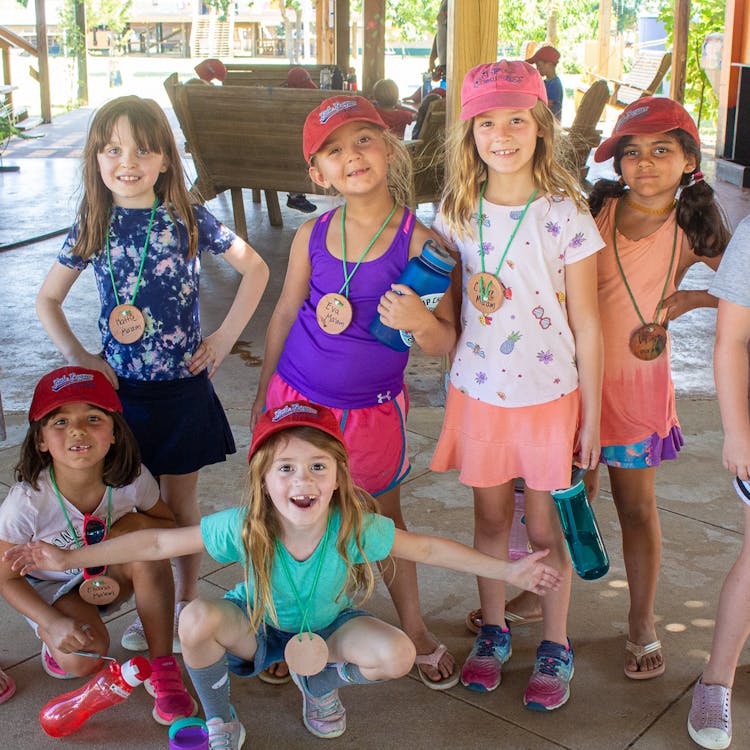
Communication: Living in a cabin with 12 peers and no parents or electronic devices allows plenty of opportunities to practice face to face communication. Campers also practice their communication skills during many of our daily activities, such as learning to navigate a sailboat with friends, playing a game of soccer, or deciding who will sweep the cabin floor during Inspection.
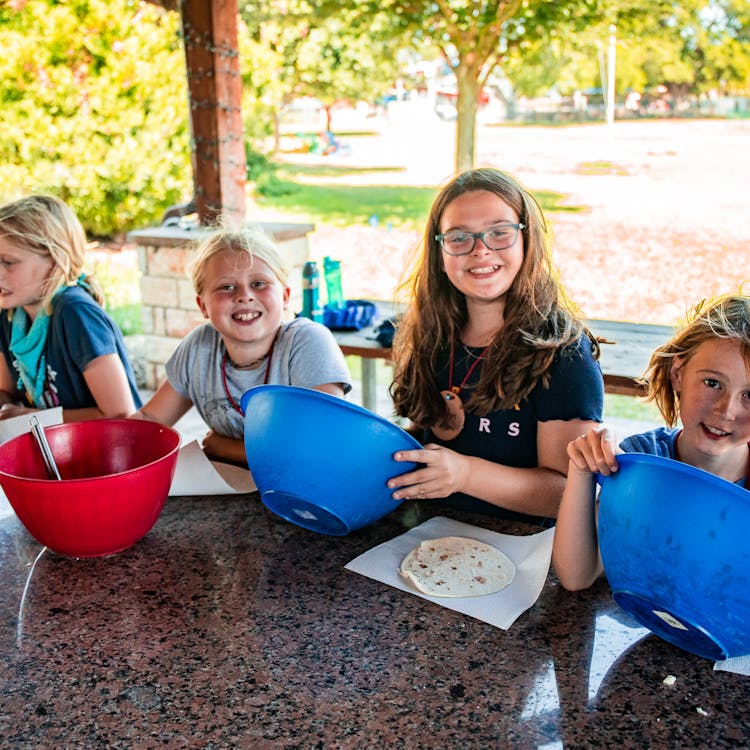
Collaboration: Camp provides the perfect environment for kids to learn how to work together. Campers collaborate with their peers when cleaning up after meals together, creating a cabin plaque to present on stage in front of everyone at camp, conquering challenges at Team Adventures, and participating in group activities throughout the term successfully.
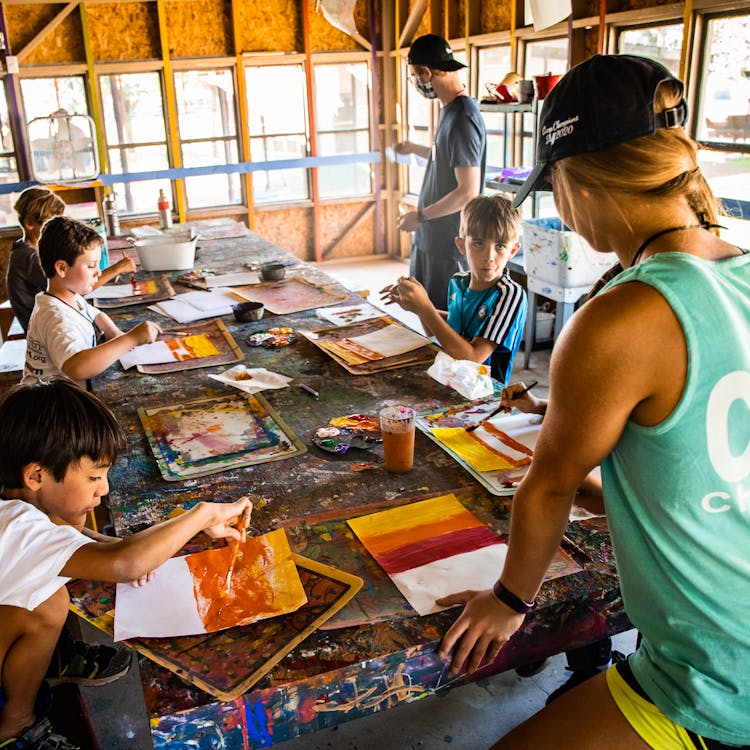
Creativity: Camp is a place where creativity and imagination abound. Our wonderful Fine Arts Center is a space where campers can exercise their creative energy in the forms of Painting, Arts and Crafts, Drawing, Jewelry-Making, Ceramics, Wood-Working, Music, and Drama.
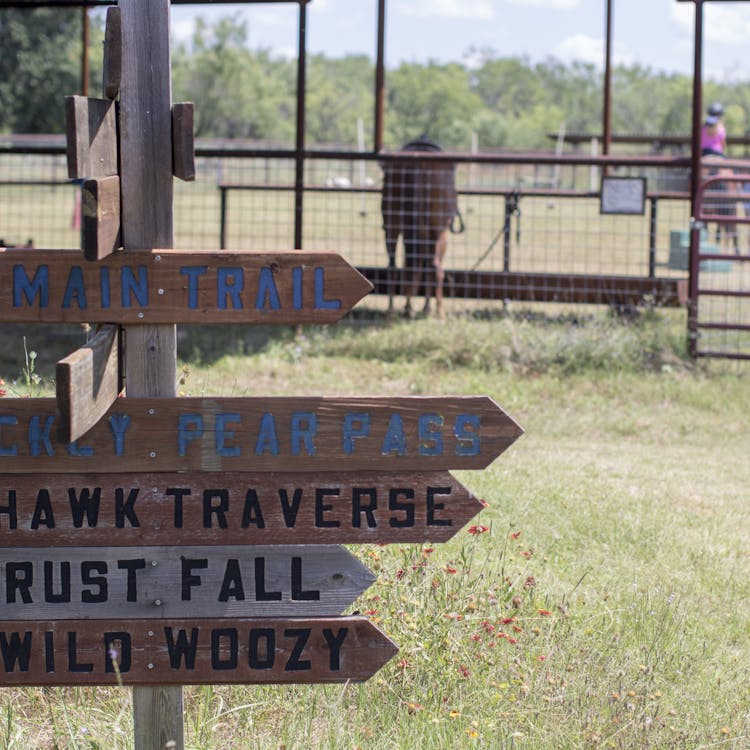
Critical Thinking: Ever been in a room where 10 different people have their own ideas about something? Welcome to a camp cabin! Resolving cabin issues is one way that campers work on critical thinking. We also challenge campers with team-building activities that hone their problem-solving skills.
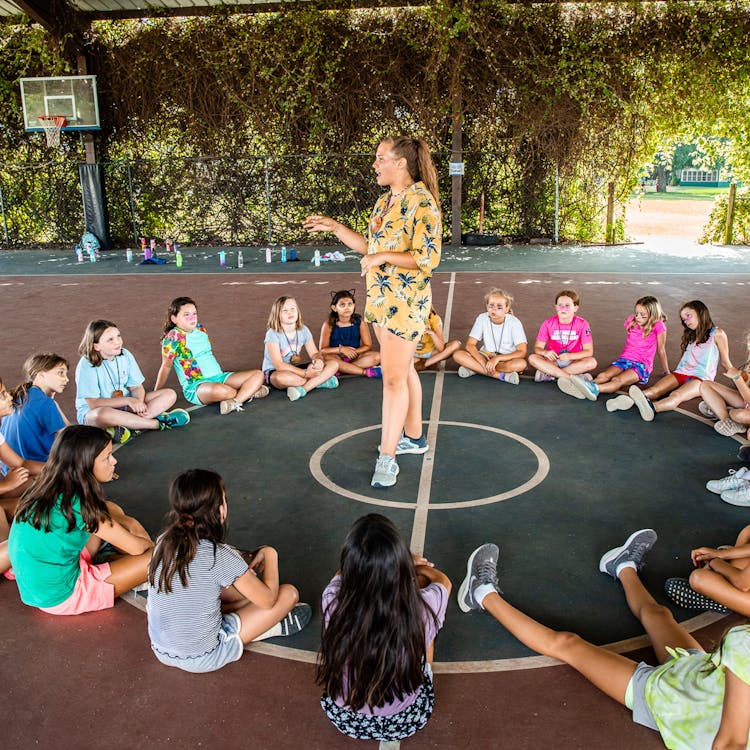
Leadership: Working in a group for weeks at a time allows leaders to emerge and bring out the excellence of the group. Whether it’s working together during a team game of basketball, cleaning the cabin for Inspection, or competing in Trojan/Spartan games, camp provides opportunities for Leadership to be built and practiced.
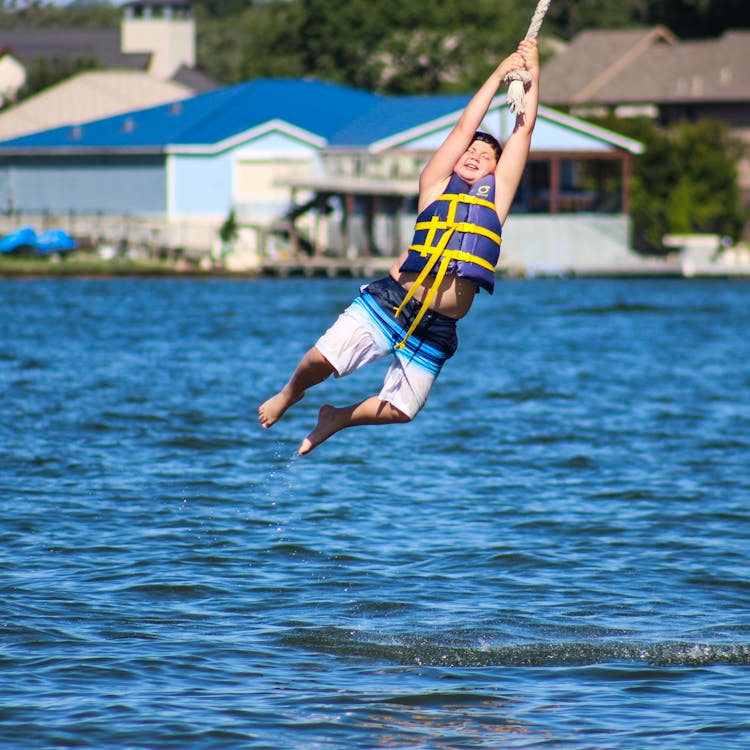
Resilience: While usually fun and exciting, camp also presents kids with unique challenges. One camper might struggle with keeping his cabin area clean, while another camper might be terrified to climb to the top of the rock wall. When presented with these challenges, campers are encouraged to face, and ultimately overcome them over their time at camp, building grit and fortitude.
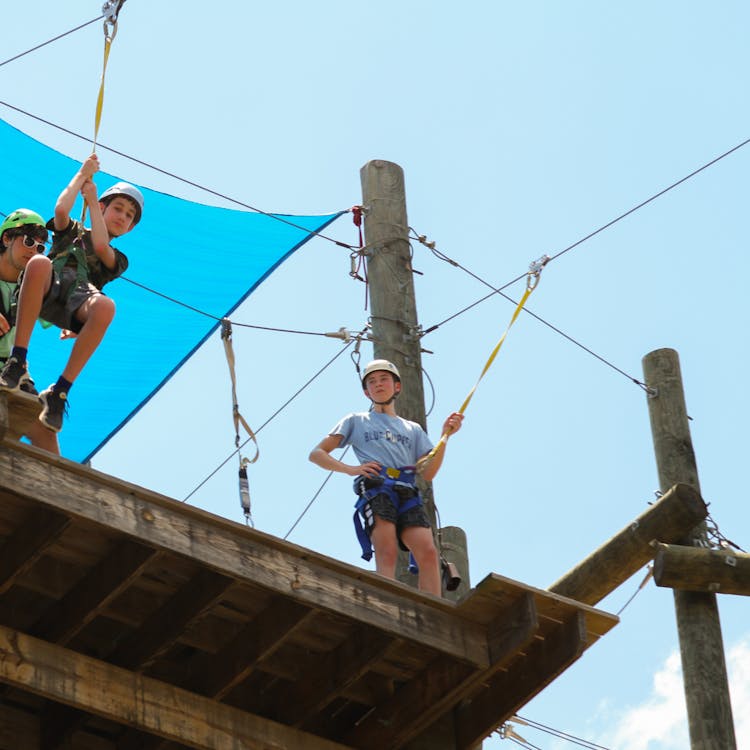
Self-Control: Lasting success requires the ability to postpone short-term pleasures in pursuit of more important long-term goals. Camp instills self control in campers by teaching them to work throughout the term to achieve particular goals, such as reaching the top of the Pirate Ship ropes course, creating a piece of pottery step by step, or practicing your archery shot until you hit that bullseye.
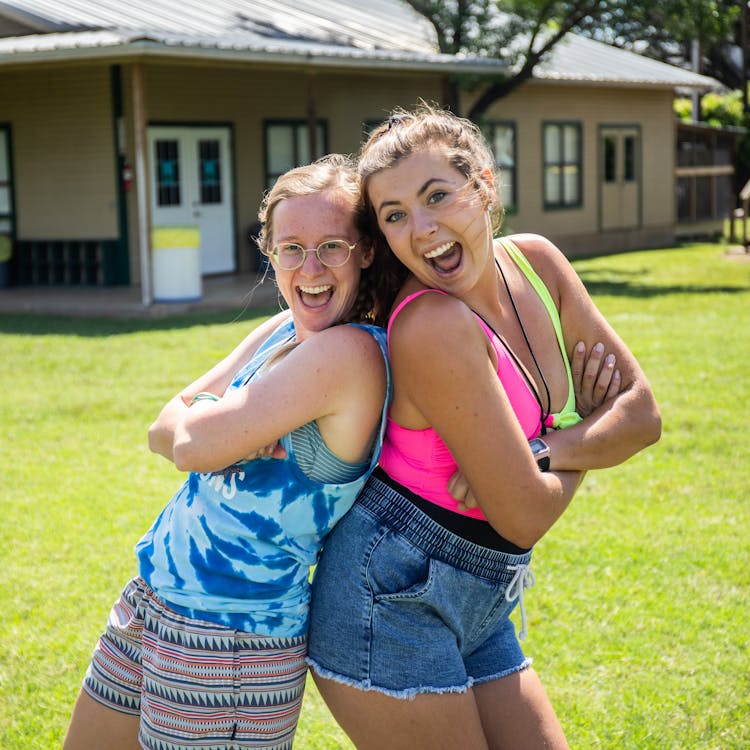
Optimism: We believe that optimism doesn’t necessarily mean “seeing the glass half full” or acting happy. Rather, optimism is believing that problems are temporary, and your actions can control or lessen them. Campers practice optimism while reflecting upon their day during nightly rituals each evening.